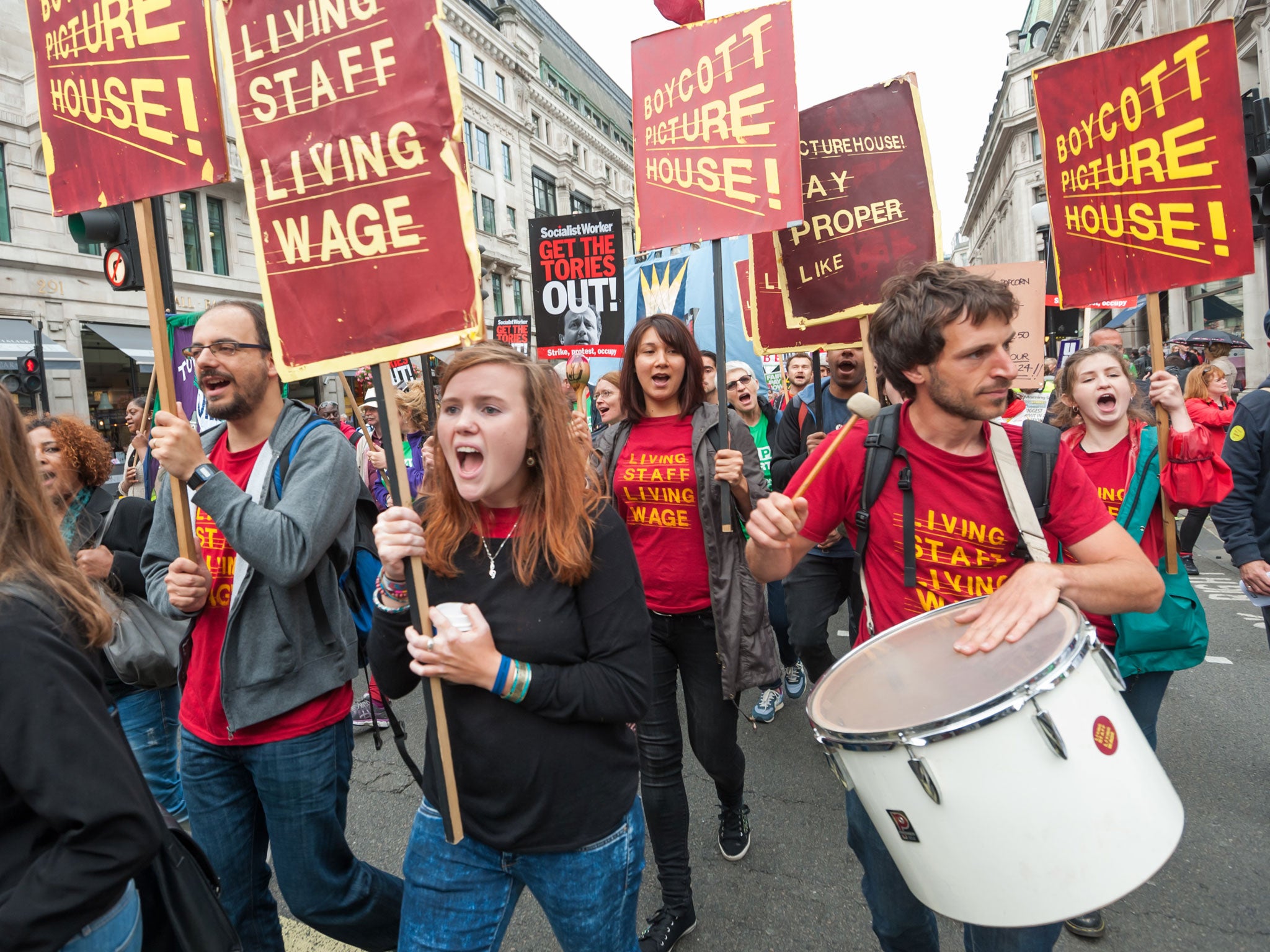Over half of all families in poverty are also in work. That’s why we need a living wage
The Living Wage campaign has made great strides in the past year, but too many employers are dragging their feet, especially in retail

Your support helps us to tell the story
From reproductive rights to climate change to Big Tech, The Independent is on the ground when the story is developing. Whether it's investigating the financials of Elon Musk's pro-Trump PAC or producing our latest documentary, 'The A Word', which shines a light on the American women fighting for reproductive rights, we know how important it is to parse out the facts from the messaging.
At such a critical moment in US history, we need reporters on the ground. Your donation allows us to keep sending journalists to speak to both sides of the story.
The Independent is trusted by Americans across the entire political spectrum. And unlike many other quality news outlets, we choose not to lock Americans out of our reporting and analysis with paywalls. We believe quality journalism should be available to everyone, paid for by those who can afford it.
Your support makes all the difference.Earlier this year it was reported that over half the families living in poverty are also in work. When the Living Wage movement started over a decade ago campaigners were often told that it couldn't be done, but now business leaders report that implementing the Living Wage brings real benefits, increasing productivity and staff retention, while lowering absenteeism.
Yesterday marked a milestone in the life of the Living Wage campaign. In the last year the number of businesses that have become Living Wage employers has doubled, and now stands at 1,000. For the first time, the Living Wage has been brought to high streets across the country, via organisations like Nationwide and Nestle.
Despite these findings, certain sectors (particularly retail) have yet to put an end to poverty pay, instead relying on the taxpayer to top up the wages of their low paid staff through in-work benefits.
Not a single major high street retailer has adopted the Living Wage. John Lewis cleaners and Tesco retail assistants are amongst the 5.28m UK workers who are earning less than a Living Wage; struggling to make ends meet and finding that their wages simply aren’t keeping pace with the cost of living.
The data also belies a worrying trend which sees part-time, female and young workers as the most likely to earn a wage that fails to provide a basic but decent standard of living. Stuck in low paid roles, young adults who should be independent are finding themselves tethered to the family home, unable to afford rent. Meanwhile, families on less than the Living Wage are reporting an increase in the need to borrow, and it's expected that their situation will worsen in the next 12 months.
It’s against this backdrop that the Living Wage campaign is highlighting the disparity between the profits of the supermarkets, high street chains and premiership football clubs. When it takes a cleaner at a football club 13 years to earn the same as a star player makes in just one week, it’s hard to see how clubs such as Arsenal can truly claim to be a part of their local community; the gulf is simply too wide.
The UK Living Wage rate is calculated by the Centre for Research in Social Policy, Loughborough University. It represents a baseline below which workers are unable to reach a minimum acceptable standard of living. The research bases this minimum not on arbitrary judgments by "experts" or political views about what someone "deserves", but on what members of the public agree that people need.
The recent public reaction to the Ritzy Cinema redundancies gives real hope, and the subsequent U-turn by Picturehouse Cinemas demonstrates that consumers are starting to make a choice about where they spend their own hard-earned cash. And they expect employers to pay their workforce a wage that means they can live, not simply exist. So come on Tesco, you know best: every little helps.
This week is Living Wage Week. To find out more about the Living Wage Foundation, go here: http://www.livingwage.org.uk/
Join our commenting forum
Join thought-provoking conversations, follow other Independent readers and see their replies
Comments